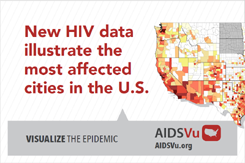New media, which refers to digital technologies including internet technology and social media outlets, presents an innovative addition to the youth health promotion paradigm. Mobile health, or mHealth, is another exciting approach to health care provision and health promotion in which mobile phone apps and technology are used for a variety of health services, including locating clinics, medication reminders, and for receiving weekly health tips.
The resources below provide general information about new media and mHealth, how they are relevant to and being used in health programs around the world, and how to adopt and integrate new media and mHealth practices into health programs.
- TECHsex 2017: Youth Sexuality and Health Online James Lykens, Molly Pilloton, Cara Silva, Emma Schlamm, Bhupendra Sheoran
TECHsex 2017 is a collection of data, statistics, stories, and perspectives on the experiences of youth, and how they interact with social media and technology, specifically related to their sexual and reproductive health and rights (SRHR). Through a national survey, interviews with key stakeholders, and focus groups with youth from all over the country, YTH brings together the latest collection of data, current and relevant statistics that will redefine our understanding of the digital landscape of youth. Beyond SRHR, youth share how their lives are influenced by social media and technology, as much of their lives have moved into digital spaces, like flirting, dating, and even bullying. - TECHsex USA: Youth Sexuality and Reproductive Health in the Digital Age
Robin Boyar, Deb Levine, Natalie Zensius; ISIS, Inc.; April 2011
This white paper by YTH’s executive director Deb Levine and others, documents how youth and young adults, specifically youth of color, use technology for their sexual and reproductive health needs. It also provides recommendations for new opportunities and innovations in the fields of sexual and reproductive health that would further increase youth engagement in technology for health purposes. - Using New Media to Promote Adolescent Sexual Health: Examples from the Field
Deb Levine; prACTice Matters; ACT for Youth Center of Excellence; October 2009
This resource, written by YTH’s executive director, Deb Levine, describes how new media is being used to provide sexual and reproductive health information to adolescents. Real life examples of applications of these technologies prove useful for anyone working in the adolescent sexual and reproductive health field, especially those with an interest in using new media to increase youth engagement in the health services they provide. - Presentations on youth, health, and technology from YTH Live
Presentations from YTH’s past conferences showcase some of the most current research findings, practices, and trends in the field regarding new media, and youth and adolescent health. Topics include youth health promotion and health service delivery using new media, including teen pregnancy, HIV prevention, and LGBTQ health. - mHealth Summit
The mHealth Summit is an annual conference that brings together individuals from several sectors, including the nonprofit, technology, research, policy, and healthcare sectors, to share research findings and best practices in mHealth and mobile technology. The summit website features information about how to register, as well as videos and lists of attending organizations from conferences in years past. - mHealth Initiative
U.S. Department of Health & Human Services
The U.S. Department of Health & Human Services provides information about past and current federal mHealth programs, as well as additional resources to learn more about other mHealth initiatives initiated by other federal agencies. - mHealth Toolkit
K4Health; updated July 30, 2013
K4Health designed the mHealth Toolkit, complete with training materials for providers, journal articles regarding use of mHealth technologies in various populations, and listservs where providers discuss the latest news in mHealth. The toolkit also offers a breakdown of mHealth technologies by usage purposes (e.g., health education, reminders, clinic locators). - Mobile Healthcare Today
Mobile Healthcare Today is a website for up-to-date news articles, blog posts, reports, videos, and other sources of information regarding general trends and changes in the field of mHealth. It is especially useful for providers, as many of the resources they provide are more related to health services provision than health education per se. - The Health Communicator’s Social Media Toolkit
Centers for Disease Control and Prevention (CDC); July 2011
This toolkit is a comprehensive resource for health professionals and organizations interested in creating or refining a social media presence for their programs and projects. It provides basic information on how to get started using various social media outlets, how to devise social media strategies to increase audience engagement, and a guide to social media terminology and need-to-know commonly used features in social media. - Promoting Health and Safety Through Social Media
Krista Travers; Canadian Centre for Occupational Health & Safety; 2009
This is a visually engaging presentation of some of the uses of social media in health promotion and includes visual examples of Facebook and other social media pages to demonstrate various concepts. It also provides basic tips to consider when posting content and engaging members of your target audience. - Health Communication via New Media: An Internet-Based Peer Community Dedicated to Health Information, Created by Youth in Dakar, Senegal
Philip Massey, et al; Cases in Public Health Communications & Marketing; 2009
This peer-reviewed case study describes an internet-based HIV prevention program created for and by Senegalese youth. It also includes information about how the youth were recruited and how the program was evaluated, which may prove especially useful for health professionals interested in designing new media health programs that are designed for created by young adults.
Homepage photo by AFS USA, Creative Commons on Flickr.

